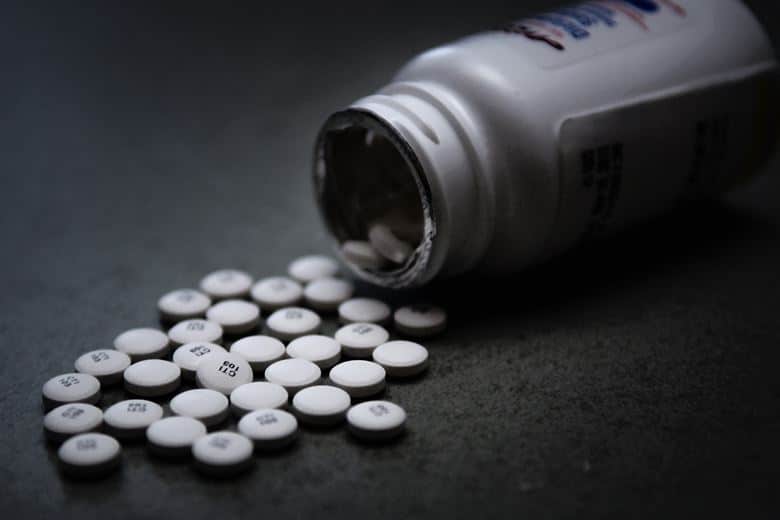3 min read
Ketamine used to manage opioid / Pain killer medicine withdrawals
ketamine@dmin Dec 16, 2018

The Ongoing Challenge of Chronic Pain, Opioid Addiction, and Opioid Withdrawal
 For individuals whose lives have been turned upside down by persistent, long-term chronic pain, the options offered by today’s modern medical science can seem almost miraculous. In the late 1990s, pharmaceutical companies practically promised to make chronic pain a thing of the past with the introduction of powerful prescription pain medications such as oxycodone and hydrocodone. These synthetically-derived medications are known as “opioids” because they have the same chemical structure as drugs like morphine and heroin that are naturally derived from the poppy plant.
For individuals whose lives have been turned upside down by persistent, long-term chronic pain, the options offered by today’s modern medical science can seem almost miraculous. In the late 1990s, pharmaceutical companies practically promised to make chronic pain a thing of the past with the introduction of powerful prescription pain medications such as oxycodone and hydrocodone. These synthetically-derived medications are known as “opioids” because they have the same chemical structure as drugs like morphine and heroin that are naturally derived from the poppy plant.
Now, more than two decades later, we have come to realize that the promise of opioid pain medications comes with a very dark side. While these medications do offer significant pain relief, they also carry the very real risk of serious, long-term addiction and the potential for overdose. According to a 2015 article in Pain magazine, it is estimated that between 21 and 29% of patients who are prescribed opioids for chronic pain misuse them.[1] According to the National Institute of Drug Abuse, it is estimated that 2 million people in the United States suffer from addiction relating to prescription opioid pain relievers, while more than 33,000 Americans died of an opioid overdose in 2015 alone.[2]
Of course we know that most individuals taking opioids for chronic pain don’t want to become addicted: they simply want to live their lives free of pain. Unfortunately, when opioids are taken over the long term, the brain naturally builds up a tolerance or resistance to the drug, so the patient must take it in higher and higher dosages to achieve the same pain relieving effects. Conversely, reducing or eliminating the brain’s growing dependence on the opioid not only brings back the chronic pain in full force, but can also bring with it very serious physical withdrawal symptoms that themselves require additional medications.
Ketamine as a Potential Solution to Opioid Withdrawal and Chronic Pain
Now, it appears that science has once again come through with a solution to this growing problem in the form of Ketamine Infusion Therapy. Ketamine Therapy involves delivering ketamine, a well-known anesthetic, directly into the blood stream in sub-anesthetic doses. Although scientists are still in the process of understanding the complex ways in which ketamine, as an NMDA receptor antagonist, alters the chemistry of the brain, both recent studies and anecdotal evidence strongly suggest that ketamine can play a powerful and positive role in combatting opioid withdrawal and managing chronic pain.
Specifically, IV Ketamine Infusion Therapy may be able to break the dangerous cycle of opioid pain medications in several important ways:
- Ketamine Therapy can address immediate withdrawal symptoms that may result from a rapid reduction in opioid usage. Ketamine has proven effective in treating both the physical symptoms of withdrawal, such as nausea, vomiting, abdominal cramping, diarrhea, and restlessness, and the emotional side effects, most critically depression, which is one of the leading causes of relapse back into opioid addiction.
- IV Ketamine Infusion Therapy can help reduce tolerance (drug resistance) to opioid medications. In other words, by enabling the patient to eliminate the use of opioids for a period of time, the patient reverses the built-up tolerance and effectively returns to a state of being “opioid naïve”. This means that should it become necessary to return to the use of opioids to manage chronic pain, the patient will require significantly lower dosages of the medication.
- IV Ketamine Infusion Therapy may offer—for some patients—an alternative method of pain relief. By offering an alternative treatment for pain medication, one which does not appear to have the same long term side effects or significant risk of addiction (when used properly through a qualified medical practitioner), ketamine may eliminate the need for opioid medications entirely. This alternative is especially important for patients who have a past history of addiction or for whom opioid medications are simply not appropriate.
It is important to note that ketamine itself is a powerful drug with a long history of abuse as a popular street drug. IV Ketamine Infusion Therapy is a precise medical treatment in which ketamine is administered very slowly and in very small doses, in a medically-appropriate controlled setting supervised by physicians and highly-qualified medical personnel. Using ketamine to fight opioid addiction without proper medical supervision can be dangerous. It is absolutely critical that anyone facing opioid addiction should seek professional and/or medical help to cope with the addiction, rather than attempting another form of self-medication.
Contact Ketamine Clinics of Los Angeles
If you or someone you love is suffering from an addiction to an opioid, we encourage you to contact Dr. Steven L. Mandel at Ketamine Clinics of Los Angeles immediately to find out if IV Ketamine Infusion Therapy may offer a solution.
For more information about Ketamine Infusion Therapy treatments for depression, bipolar, anxiety, post-traumatic stress disorder (PTSD), obsessive compulsive disorder (OCD), fibromyalgia, pain syndromes and other conditions contact us at Ketamine Clinics of Los Angeles in Southern California (Orange County) by clicking here or calling 310-270-0625.
[1] Pain. 2015 Apr;156(4):569-76.
[2] https://www.drugabuse.gov/drugs-abuse/opioids/opioid-overdose-crisis#five

